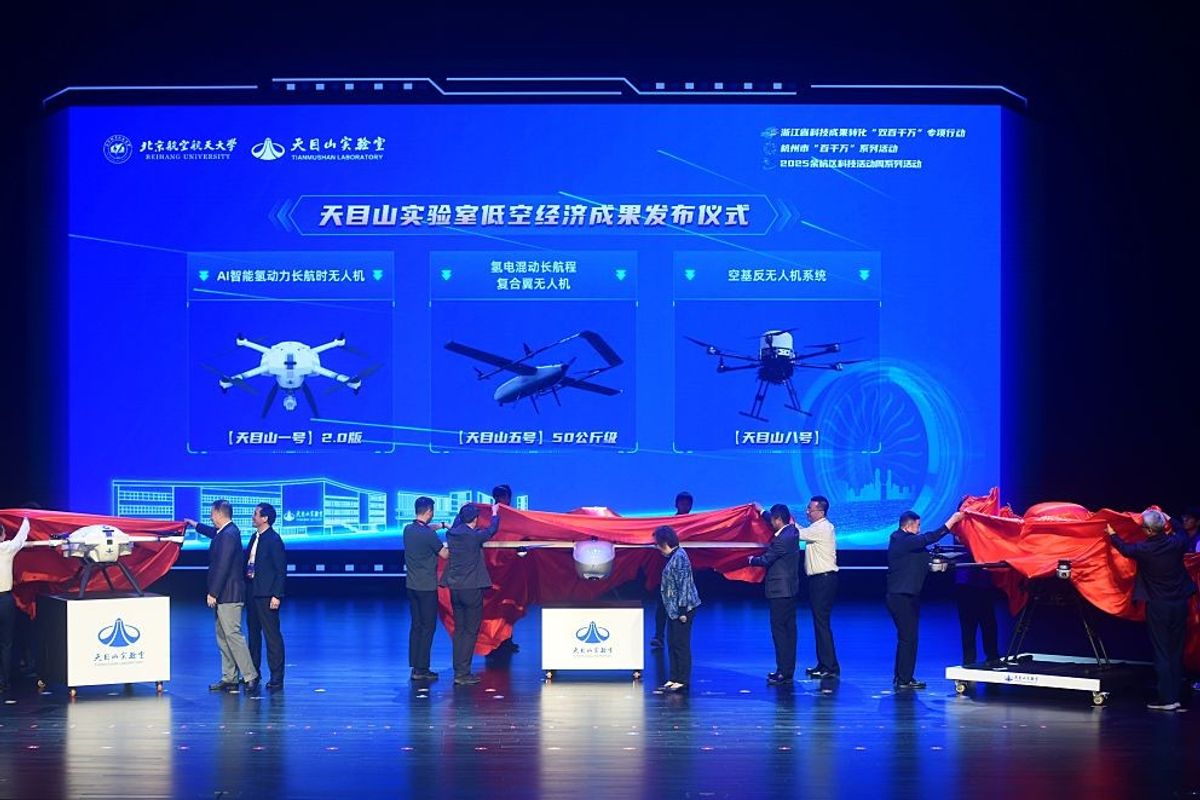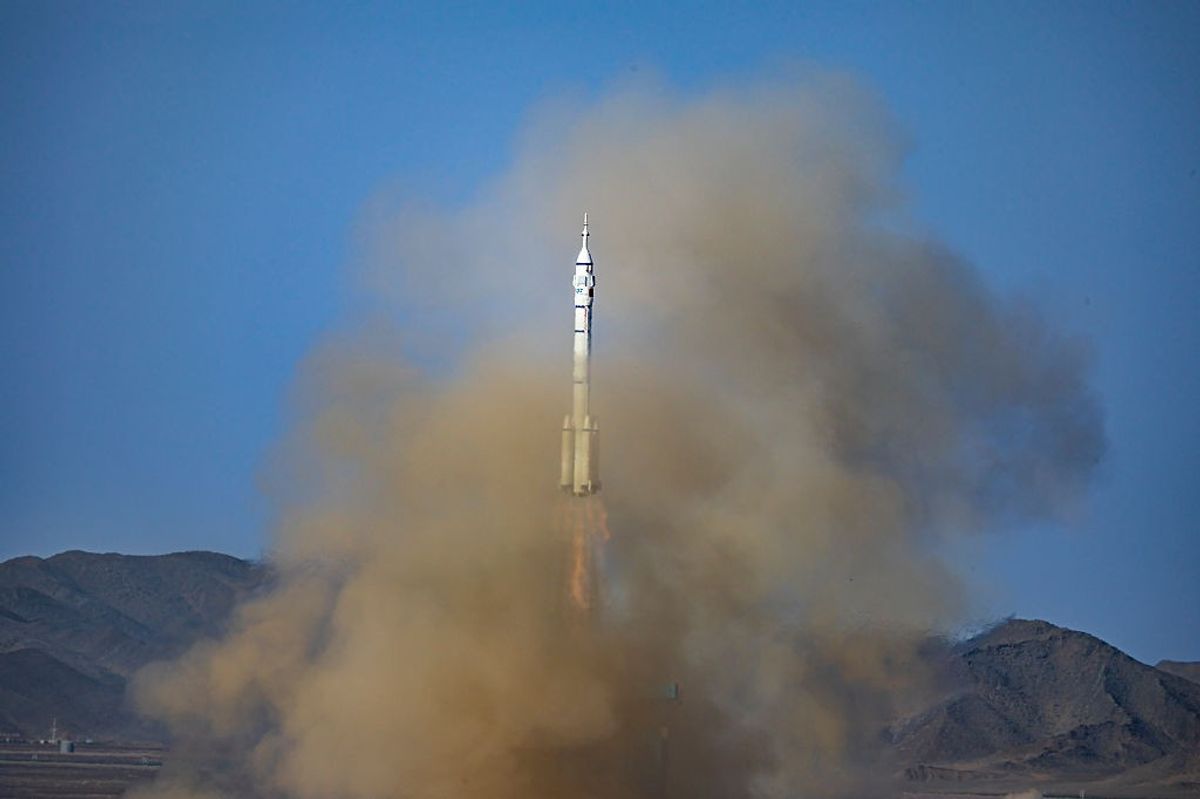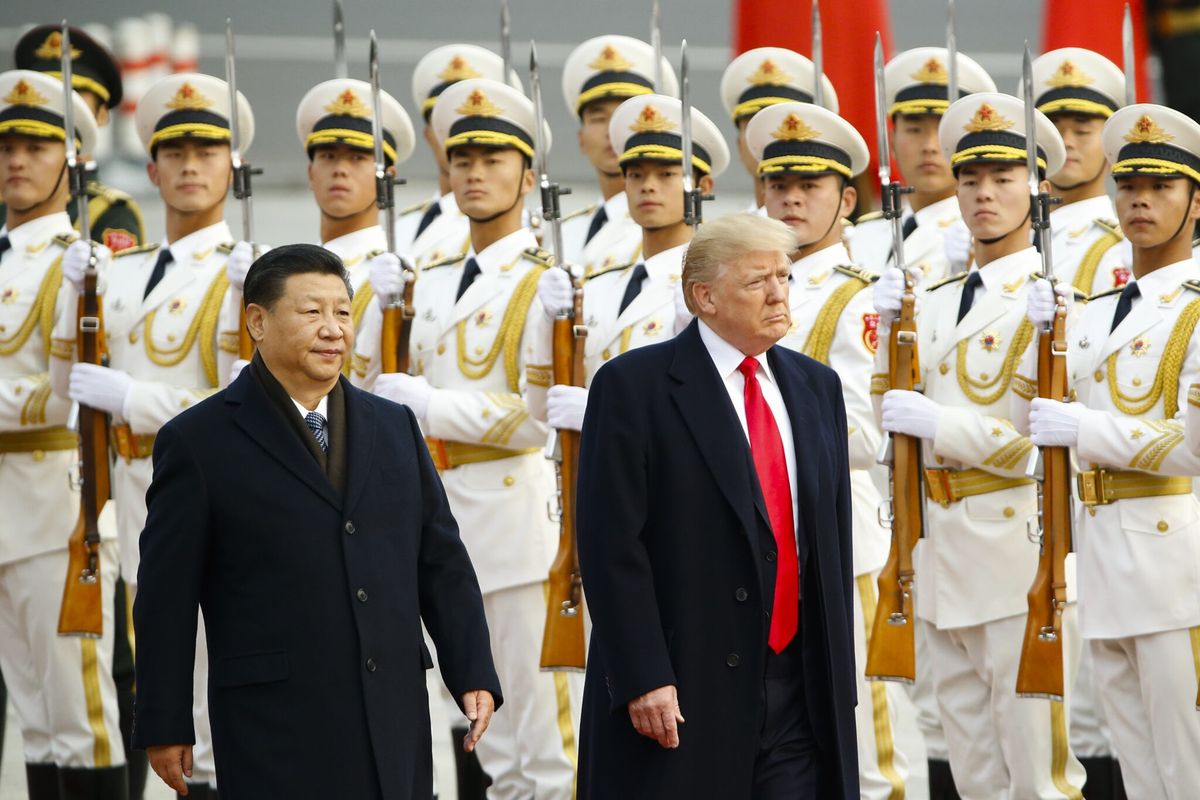SUBSCRIBER+ EXCLUSIVE REPORTING — When Chinese President Xi Jinping came to San Francisco last November to meet with President Joe Biden, Chinese pro-democracy activists in the U.S. turned out in force to protest Xi’s authoritarian rule. They were met by other ethnically Chinese people wielding metal rods and pepper spray – a pro-regime presence that several protesters said was orchestrated by the Chinese government.
For Jinrui Zhong, a third-year law student at Georgetown University in Washington, DC, the pressure from Beijing has been more subtle. Zhong told The Cipher Brief that when Chinese security services suspected he was speaking out against Xi’s regime, they detained his father in China and told him to tell his son to “love his country more and love the Party more.” The message came with a warning, Zhong said: the family could lose its home and his father could lose his job as a low-level bureaucrat.
The reach of China’s security services abroad takes many forms. Increasingly, Chinese-born people in the U.S are the targets of subtle forms of coercion, with China and its agents monitoring apps such as WeChat, used in China and by many diaspora Chinese to stay in touch with family at home. Pro-China campus groups have been funded by the Chinese government, and the networking and community groups which diaspora Chinese rely on as networks for social and financial support are often directed by people taking their orders from Beijing, according to human rights activists and China watchers interviewed by The Cipher Brief. They say these groups have harassed and even denounced Chinese in the U.S. who criticize the Xi regime.
“If you are a Chinese diaspora person, you know not to speak out because you get immediately ostracized by your community if you do,” said Maya Wang, associate director in the Asia division at Human Rights Watch. “It’s not that you get dragged into a dark room, it's about changing the environment in which people live,” Wang told The Cipher Brief. “A lot of that is about making your friends and family ostracize you if you speak out against the government.”
This is the face of China’s broadening crackdown on dissent – a collection of activities widely referred to as transnational repression. China no longer limits its pursuit of dissidents to Uighur Muslims in Xinjiang, Tibetan activists in Beijing, or others on Chinese soil; the government has created a broad network of unofficial “police stations” and pressure groups around the world that it uses to track and sometimes attack dissidents, pro-democracy advocates and others deemed by the Xi regime to be potential threats.
China’s “United Front”
These efforts are coordinated under the leadership of a Chinese Communist Party organization called the United Front, according to rights organizations and a September 2023 report issued by the U.S. State Department.
The Xi regime has no shortage of targets in the U.S.; according to the Migration Policy Institute, some 2.4 million Chinese- Americans were born outside the U.S., mainly in the People’s Republic, and most still have family ties back home that leave them susceptible to Chinese government pressure.
“Even if their bodies are physically outside of China, their digital social network is still living in an ecosystem that’s monitored, influenced and manipulated by the Chinese government,” says Wang.
Activists say the Chinese Students and Scholars Association (CSSA) has pressured Chinese students studying in the U.S. to join United Front groups and rallies, as a way of showing public support for the government and to help mute any criticism of China. “We saw evidence of student groups at USC and UCLA,” two large universities in Los Angeles, “being mobilized to come to San Francisco and welcome Xi,” said Anna Kwok, executive director of the Hong Kong Democracy Council, who was in San Francisco during Xi’s visit. The intent, Kwok said, was to intimidate the pro-democracy demonstrators and drown out their message.
“The repression is getting worse,” said Yaqiu Wang, research director for China, Hong Kong and Taiwan at Freedom House. “Physical intimidation and surveillance are a small part - what’s bigger really is digital attacks, which they can do without being in the U.S.”
The harassment aims to pressure diaspora Chinese to self-censor, Wang said in an interview with The Cipher Brief. “Sending the message that your family or interests in China could be jeopardized if you speak out against the Chinese government, it’s been very effective.”
For Jinrui Zhong, the Georgetown law student, the harassment has continued. Zhong said that each time he has spoken to the media, his father has been hauled into the local police station in Zhong’s hometown. His father has been detained four times by Chinese security agents, Zhong said, and they have questioned his father about Zhong’s anti-party rhetoric. Security officials have even shown Zhong’s father transcripts of his supposedly secure WeChat messages.
That hasn’t daunted Zhong. “Right now, I am still speaking out. I think it’s important to let people know how this process works,” Zhong told The Cipher Brief. Despite the harassment of his family, he still believes that “if you’re here, you’re safe and you can speak out,” and he added that returning to China would likely get him arrested. “I realize that I am unable to return to China,” he said.
China says the so-called “police stations” are “service centers” that provide basic help for millions of Chinese living in other countries. U.S. officials and advocacy groups say that while these places may operate from official consular offices or storefront Chinese businesses, part of their work involves tracking and pressuring Chinese citizens.
In 2022, Yan Xiong, a leader of the 1989 Tiananmen Square democracy protests, tried to run for Congress in New York after a 25-year career as a U.S. Army chaplain. Chinese government agents threatened to abduct Xiong, organized protests against him and tried to ensnare him in a honey-trap plot. Faced with relentless harassment and unable to gain traction with the district’s large Chinese population, Xiong dropped out of the race.
While investigating Xiong’s case, the FBI dismantled an alleged Chinese police station in Manhattan’s Chinatown, arresting five Chinese nationals thought to be members of China’s police or security services.
Today, activists say the work seems to be shifting to the subtler forms — the online pressure and use of groups whose direct links to the Communist Party or the Xi regime are harder to trace.
The U.S. response
China’s efforts to track its citizenry have led to investigations in several countries, including Spain, Canada, and the U.K. In the U.S., Congress has moved to legislate against the practice.
The Transnational Repression Policy Act, introduced last year, would give the U.S. additional tools – including freezing assets held in the U.S. or denying visas – as ways to hold foreign governments and individuals accountable when they stalk, intimidate, or assault U.S. citizens and residents.
A second bill is aimed specifically at protecting Hong Kong democracy activists. This would include Kwok, who has received numerous death threats that she believes were instigated by Chinese and Hong Kong officials. That bill, the Hong Kong Economic and Trade Office Certification Act, would allow the U.S. to strip diplomatic immunity from three Hong Kong government diplomatic outposts in the U.S., which members of Congress say surveil democracy advocates in the U.S.
Kwok believes the U.S. could do more. While the State Department and the FBI both have personnel dedicated to monitoring China’s repression in the U.S., she says local police departments and other government agencies don’t understand the scope of the threat and often fail to link single examples to a larger campaign of transnational repression, or to government-sponsored groups that Kwok and the House Select Committee on the Chinese Communist Party say coordinate the attacks.
“All the charges are for harassment or assault,” Kwok said. “There are not a lot of specific crimes or charges that reflect the specificity of transnational repression, so there’s a lot of difficulty for the Department of Justice to make a case.”
Some analysts note that what makes China’s transnational repression difficult to police is that it is nowhere near as violent—or visible—as Russia’s campaign to kill its political opponents abroad. Russia’s actions have ranged from the radioactive poisoning of a former spy in a London tea room to the recent shooting in Spain of a Russian pilot who defected to Ukraine.
“When you have such a sophisticated operation” as the Chinese do, said Freedom House’s Wang, “Why do you have to kill people? You can just stop them at the beginning.”
Read more expert-driven national security insights, perspective and analysis in The Cipher Brief.














